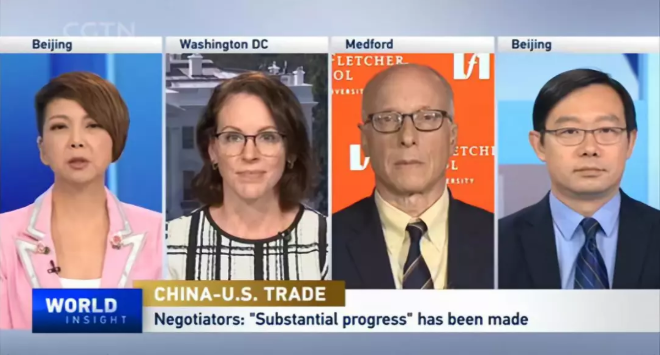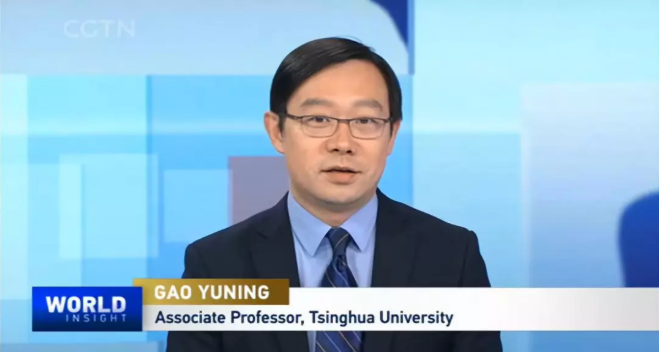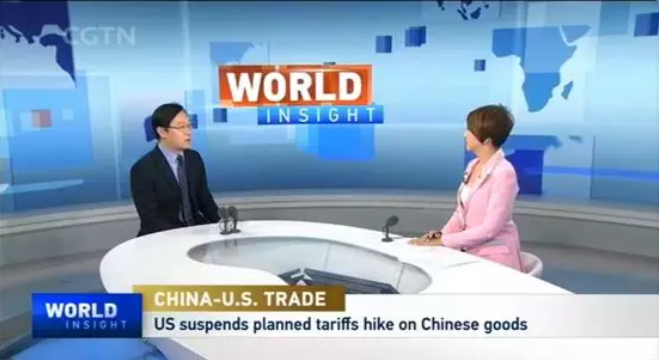英文全文实录如下
高宇宁副教授做客CGTN谈中美贸易谈判新进展
10月16日,清华大学公共管理学院华宇讲席副教授、国情研究院副研究员高宇宁做客CGTN世界观察(World Insight)栏目,就中美贸易谈判最新进展与栏目主持人田薇进行了探讨。参与访谈的嘉宾还有:来自华盛顿的美中商会商业咨询服务主管Anna Ashton女士,和来自梅德福的塔夫茨大学弗莱彻法学院Joel Trachtman教授。

在采访中,高宇宁副教授指出,中美贸易谈判将会是一个持续的过程。关于此次谈判达成的协议,与美方宣传的“第一阶段成果”不同,中方认为书面协议才会有保证,因此国内更多的是适度讨论。中方希望在下一步谈判时彼此之间能够达成一些协议,这也是各方所期待的。对于中美两国领导人在即将举办的APEC会议上签署某些协议的可能性,他强调能在APEC会议上签署协议,这是各方一直所期待的,签署协议是一切谈判的出发点。双方能够达成一致,相向而行,这是一个好的发展态势。

Q: From your perspective, how should we read the statements coming from both sides? For the US side, it’s so called “the first phase”, however from the Chinese side, there is a lack of a specific phase like this. So, what does that mean?
Q: And of course, it needs a lot of works, you know, written down words, that takes a lot of time and also real detailed negotiation. People are talking about in APEC whether two leaders would be able to sign something. Is it too early or too fast, Mr. Gao?
Q: It seems interesting, Mr. Gao, that we are moving the target, because at the very beginning, as Ms. Asthton put, the nature of discussion, at least from the US business perspective, is not necessary about certain areas that become the focus of both the media and public now between the two countries and in terms of the economic ties What goanna happened when tensions being put on by both side to one another at different time and tariff against each other as a result of lack of progress of the negotiations. Are we further away where we started? Will things remain that way or even going further down the road that starts from the very beginning to the new phase?
Q: Mr. Gao, unpredictability is the key word, I guess, for the negotiations throughout the past fifteen months. For different reasons, I guess, for different sides, for the US side, it’s about whether China has committed to what US believe that China would do, but for the Chinese side, it’s a very different story: whether what is already be committed are going to be done by the US side, whether they would still sign on things that they early have agreed clearly to sign on, whether their negotiator will change and whether the nature of the negotiation will change. So there a lot of variables in the negotiation and unpredictability is the nature of these negotiations, not to mention the nature of the US-China relation. So, in a picture, Mr. Gao, how do you see the US-China trade will bring in for the immediate future for example before the election season in the United States? More predictability or more unpredictability? Its impact on the rest of the relationship would be more positive or not necessarily?




